Facebook’s Mark Zuckerberg recently announced its plan to hire 10,000 people in Europe to develop a new artificial intelligence (AI) venture: the metaverse. The metaverse is a boundless 3D digital world accessed through a virtual reality (VR) headset, where people can go to a concert, walk in the park, and even have a meal in a restaurant.
Once a concept contained in the science fiction world of Neal Stephenson’s 1992 novel Snow Crash, Zuckerberg has pinned his trillion-dollar company’s future to creating a metaverse that is as easy to access as the internet. Renaming Facebook as Meta is the first step in Zuckerberg’s AI future, signaling all industries to get ready for this new virtual landscape or risk being left behind in the real world.
The metaverse, if as successful as Zuckerberg predicts, will provide opportunities in all industries, including the foodservice sector.
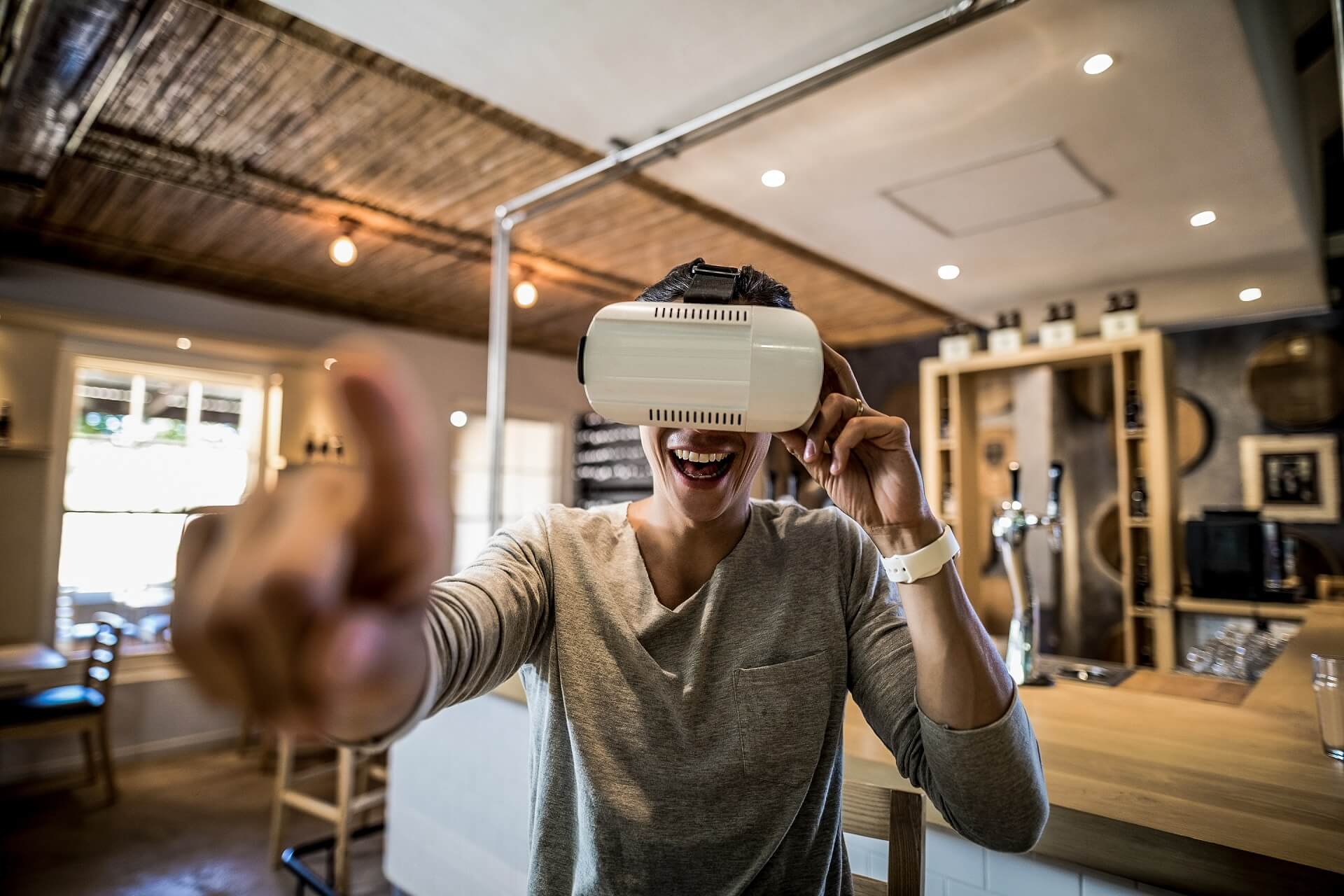
Image: AdobeStock | wavebreak3
KTCHNrebel speaks to Joseph Schumaker FCSI, president and CEO of foodservice consulting start-up FoodSpace, and FCSI Associate Jay Bandy, president of Atlanta based Goliath Consulting Group; two consultants primed for the reality of the foodservice’s artificial future, to discuss how the metaverse will impact the industry, and how restauranteurs can capitalize on this latest trend.
Foodservice in the metaverse
Despite the recent hype, the metaverse remains a concept with no single definition. Quantifying how this futuristic idea will impact real world businesses is challenging. “I think it’s a little early to tell how quickly it will impact the foodservice industry in general,” says Schumaker, who is also chair of FCSI The Americas division’s Technology Committee.
However, both consultants believe that from a marketing perspective the metaverse opens a realm of opportunities savvy restaurateurs should be quick to take advantage of. “Step one is looking at advertising opportunities. Targeted, thoughtful advertising will be crucial,” says Schumaker.
“We always try to keep our operators educated, there’s currently so much going on now in terms of technology that the metaverse is just one piece of the puzzle. I see the metaverse as a huge opportunity for marketing. Allowing potential guests to see menus and what the food and beverages actually look like in a virtual setting will make a huge difference to the restaurant experience,” says Bandy.
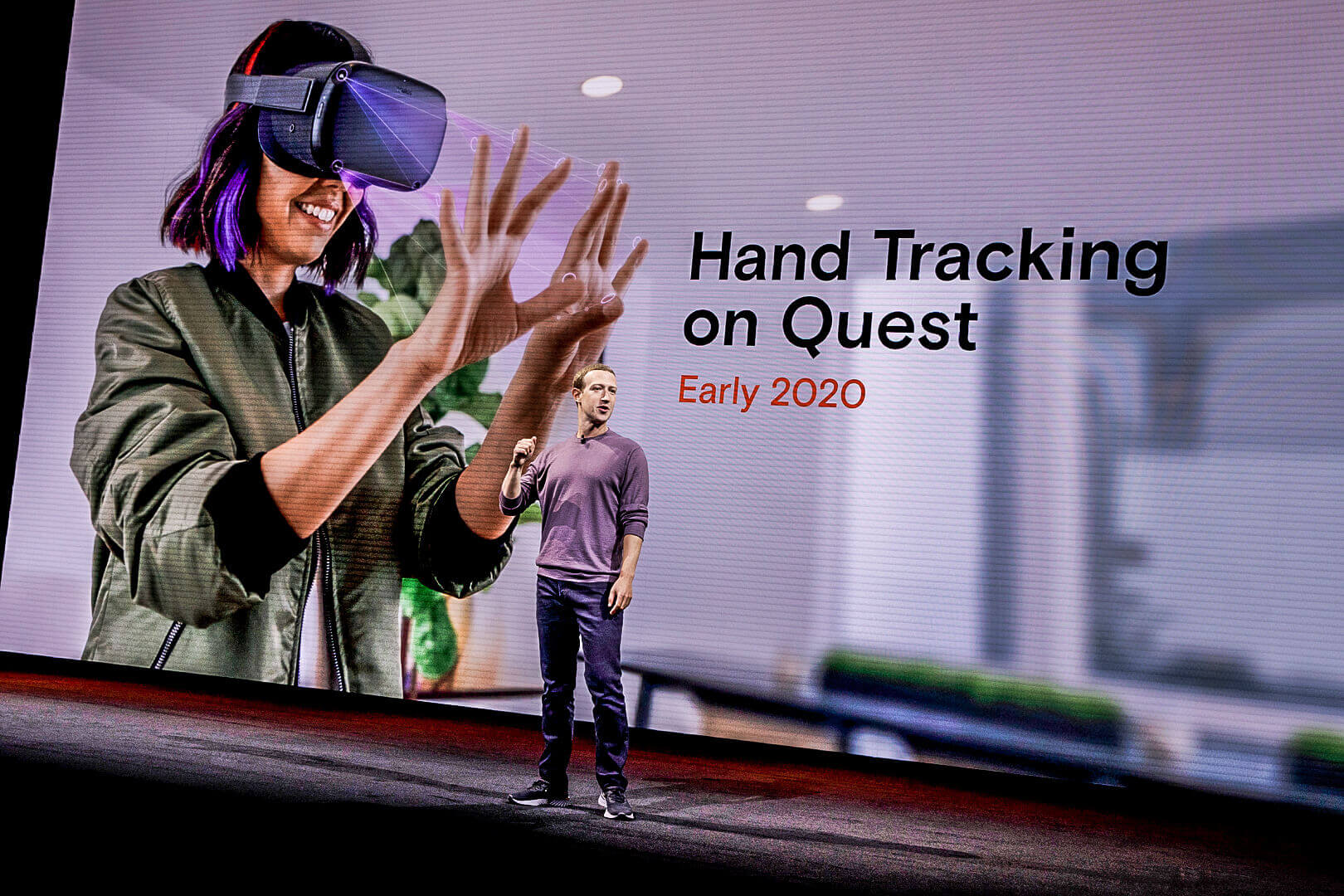
Image: Meta
The reality of virtual dining
“Pretty much everything you do inside a restaurant you should be able to replicate or enhance in the metaverse,” says Bandy. The next generation of diners will be able to walk into a restaurant, choose their preferred table, order food, and pay inside augmented reality worlds akin to that of video games. “Payments will also be easy in the metaverse, with Google Wallet or Apple Pay inbuilt into the experience,” he adds.
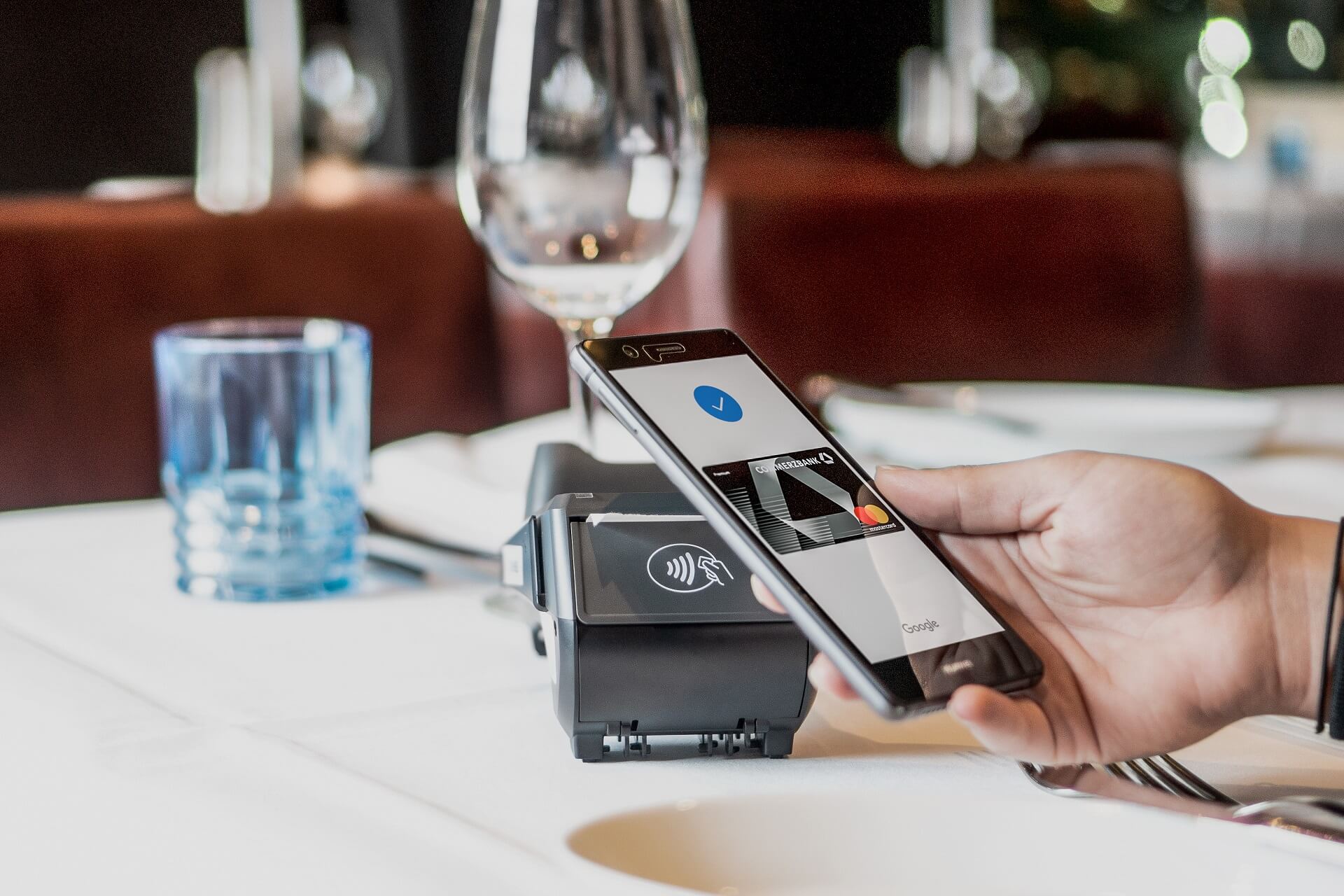
Image: gastronovi-GmbH
“Often restaurants experience a tug of war between experience and convenience. The metaverse is the ultimate marriage of these two elements. Customers can look at and order food without leaving the house, whilst still having the experience of going out for a meal with others,” says Schumaker.
What remains entirely uncertain is how the typical mom and pop bistro will deal with these huge technological changes and their financial implications. “My initial concern is that the metaverse favors chain restaurants with big creative and technical budgets. Some independent operators may be left out of the metaverse,” says Bandy.

Image: AdobeStock | baranq
Expanding markets
Created in response to the increasing demand for food delivery ghost kitchens or cloud kitchens are a recent food industry trend, with their growth increasing exponentially due to the Covid-19 pandemic. Ghost kitchens are an affordable option for independents and chains alike that allow operators to fulfil off-premises orders for fast delivery, while maintaining reduced set-up, operation, and labor costs.
“Ghost kitchens will benefit from the metaverse. The ability for restaurants to advertise their offering in a different way, for example giving guests virtual menus will help to boost the microtrend of ghost kitchens,” says Schumaker.
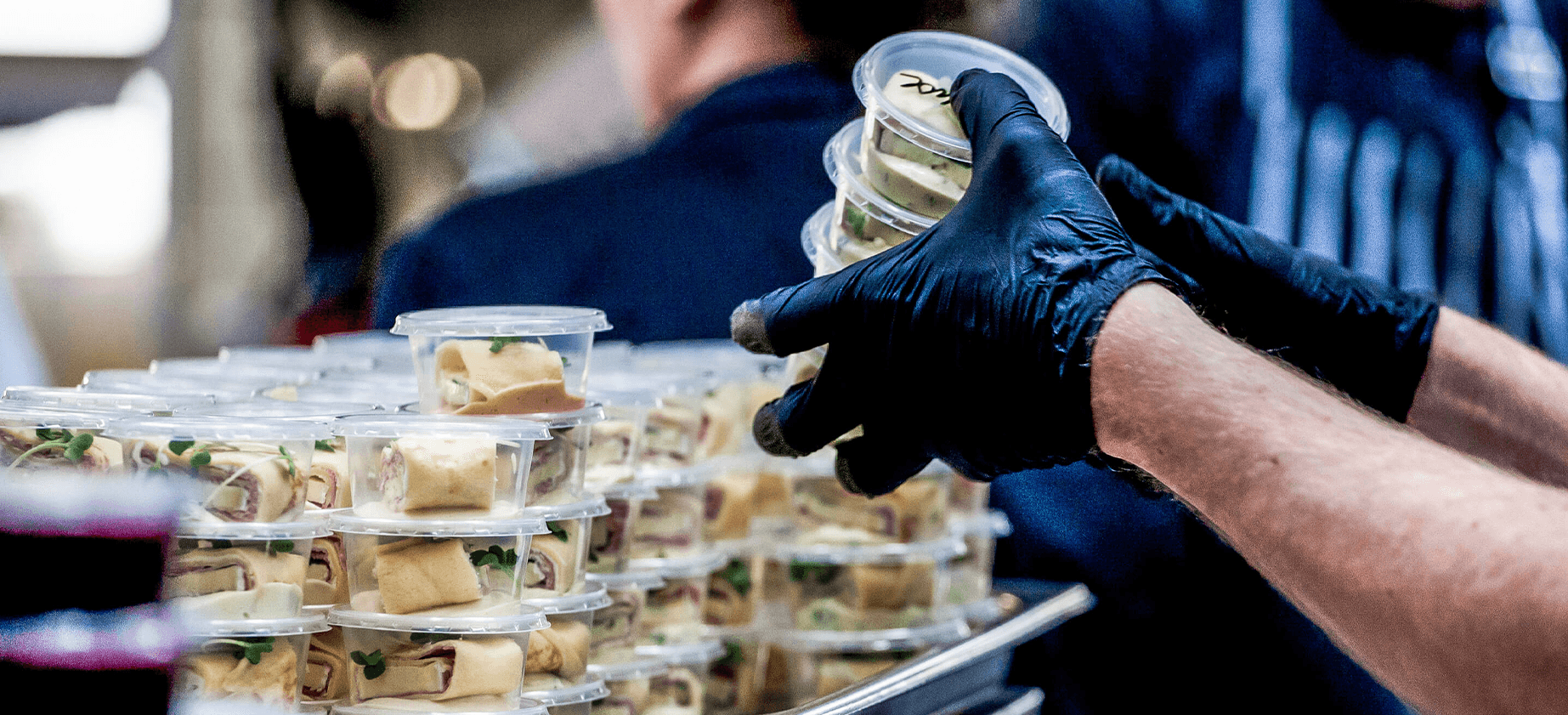
Image: Shutterstock | jessehamad
The rise of the metaverse will help to close the gap between ghost kitchens and restaurants through increased customer interaction, ultimately making ghost kitchens a more popular option. “Ghost kitchens will no longer be ‘ghost’,” says Bandy. Through the metaverse “the guest will be able to connect with how their food is prepared and the environment it is made in, rather than just receiving an unknown package.”
The rise of the metaverse will impact different sectors of the foodservice industry differently, with some experiencing natural gains and others having to work harder to keep up to date with virtual reality. “Catering and large-scale events will benefit the fastest from the metaverse, although the way people eat at these events will change. Attending a baseball game virtually will provide a very different dining experience; operators and venues will have to adapt and provide new services,” says Schumaker.

Image: AdobeStock | mavoimages
Are real restaurants a thing of the past?
Most people love sitting down with friends at a restaurant, or attending large-scale catered events, soaking up the atmosphere in the real world. The metaverse doesn’t threaten this reality – foodservice providers will still be able create these unique real-world experiences alongside the marketing opportunities of the metaverse.


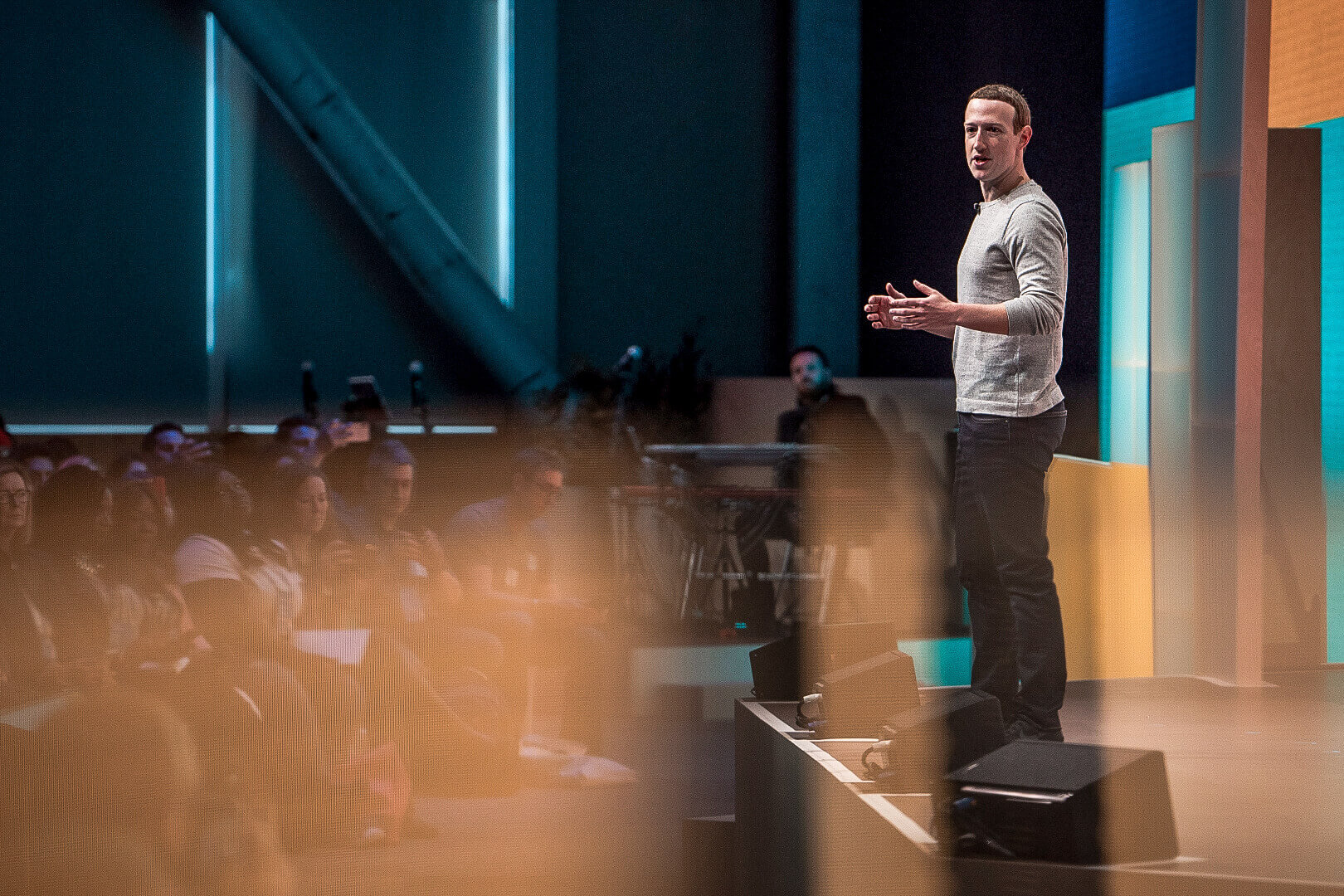









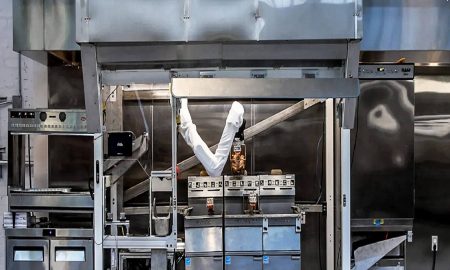
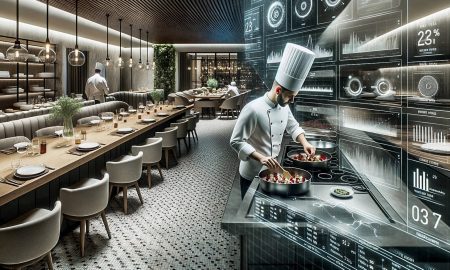

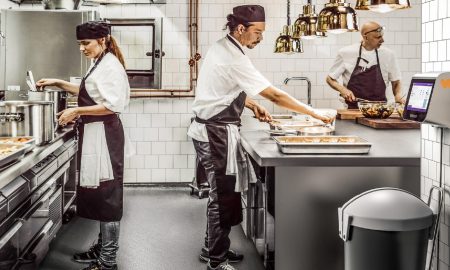


Pingback: Ivan & Sergey Berezutskiy - double game of star chef twins | KTCHNrebel